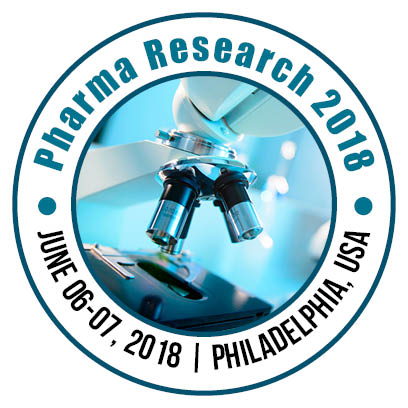
Michael Chorny
University of Pennsylvania, USA
Title: Codrug-impregnated nanocarriers as an experimental therapy for aggressive neuroblastoma
Biography
Biography: Michael Chorny
Abstract
Camptothecin derivatives are a family of potent small-molecule topoisomerase I inhibitors with a broad spectrum of activity against adult and pediatric cancers. Safety, metabolic stability and therapeutic efficacy of camptothecin can be greatly improved by formulation and delivery in biodegradable nanocarriers. In our studies, we evaluated an experimental delivery strategy integrating nanocarriers with novel, in situ activatable codrug of a potent camptothecin (SN-38) and redox-silent tocol mitocans. Reversibly hydrophobized codrug constructs stably encapsulated in sub-100 nm sized nanoparticles (NP) were comparatively examined in orthotopic xenograft models of aggressive neuroblastoma (NB), the most common solid tumor in infants responsible for 15% of all childhood cancer deaths. NP loaded with a phenolic ester codrug were found to be most effective against both chemo-naïve and chemoresistant NB cells (IMR-32 and BE (2)-C cells derived at diagnosis and during relapse after chemotherapy, respectively) in conditions modeling different levels of exposure experienced by NB cells in the tumor environment. Slowly activatable codrug with phenolic carbonate and aliphatic ester designs were notably less efficient. In a model of previously untreated disease, phenolic ester codrug-loaded nanocarriers administered weekly for four weeks induced rapid regression and completely inhibited regrowth of orthotopic tumors over a 180-day period. The same codrug/ nanocarriers formulation tested against chemoresistant NB potently suppressed tumor growth and extended animal survival up to seven weeks, in contrast to a marginal and transient effect of a clinically used SN-38 precursor, irinotecan. Our experimental results in preclinical NB models faithfully reproducing key features of aggressive disease provide evidence that camptothecinmitocan codrug can be rationally designed as a therapeutic cargo for nanocarriers-based therapy of high-risk NB. Integrated codrug/nanocarriers-based delivery is a promising experimental treatment strategy for pediatric and adult solid tumors not responding to standard therapies.

